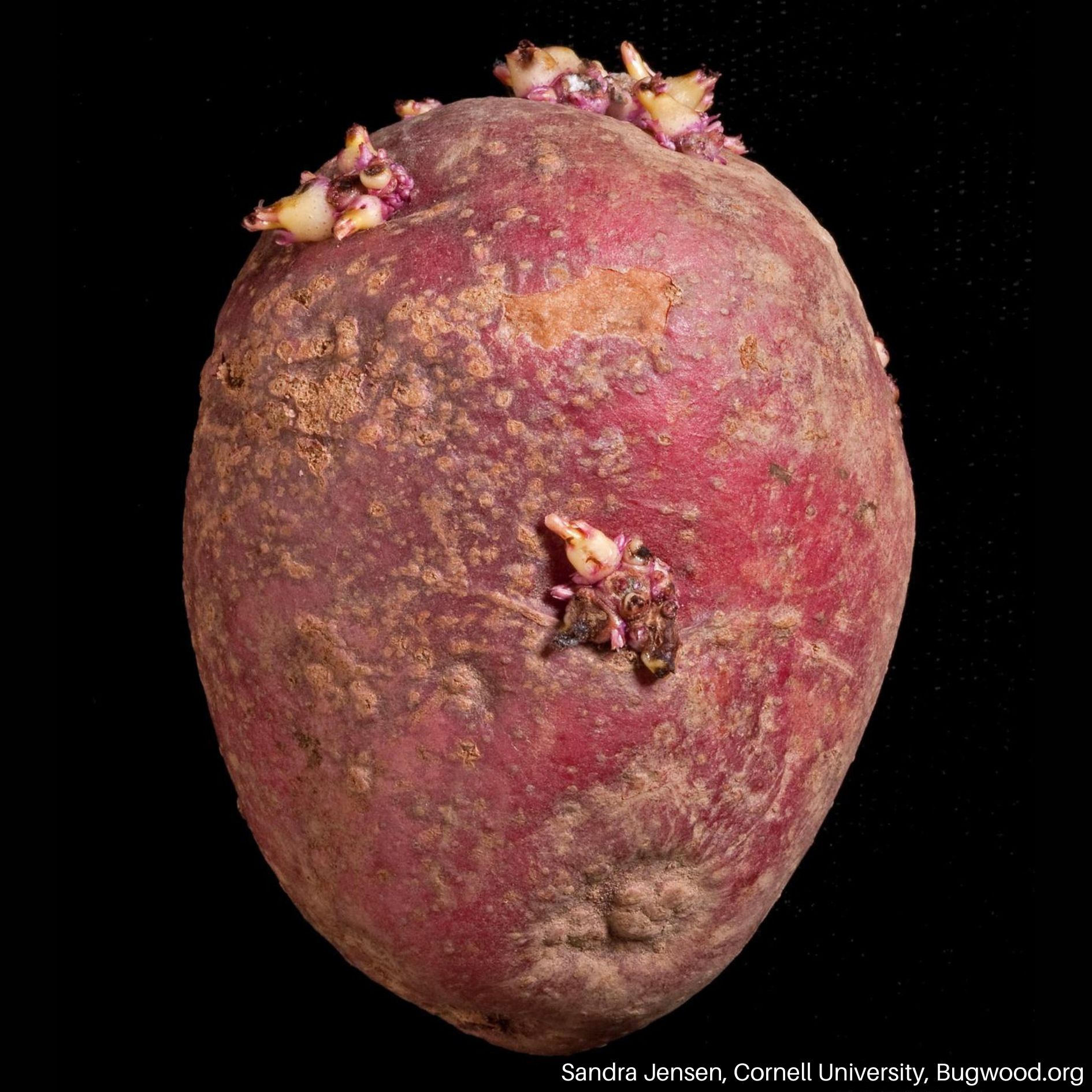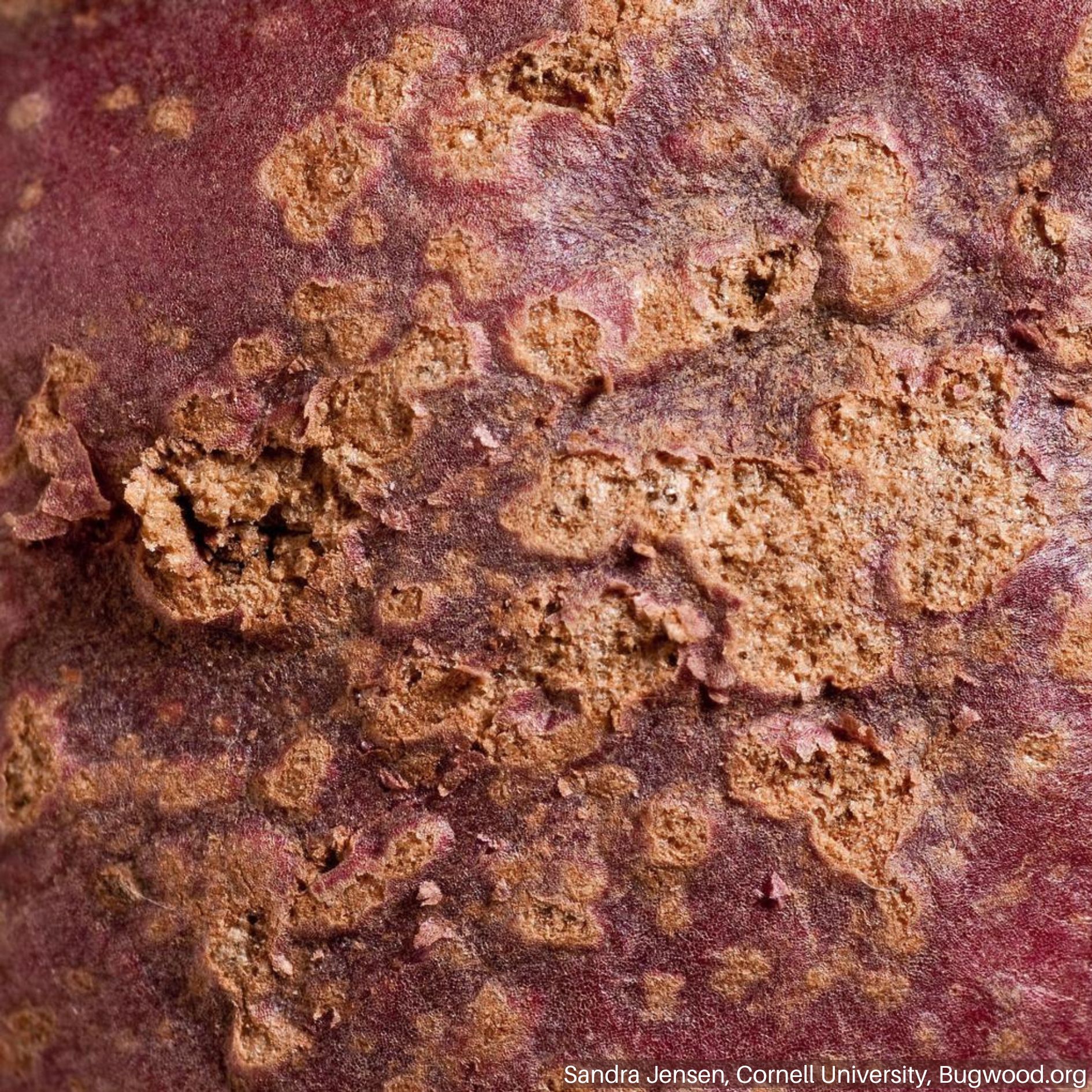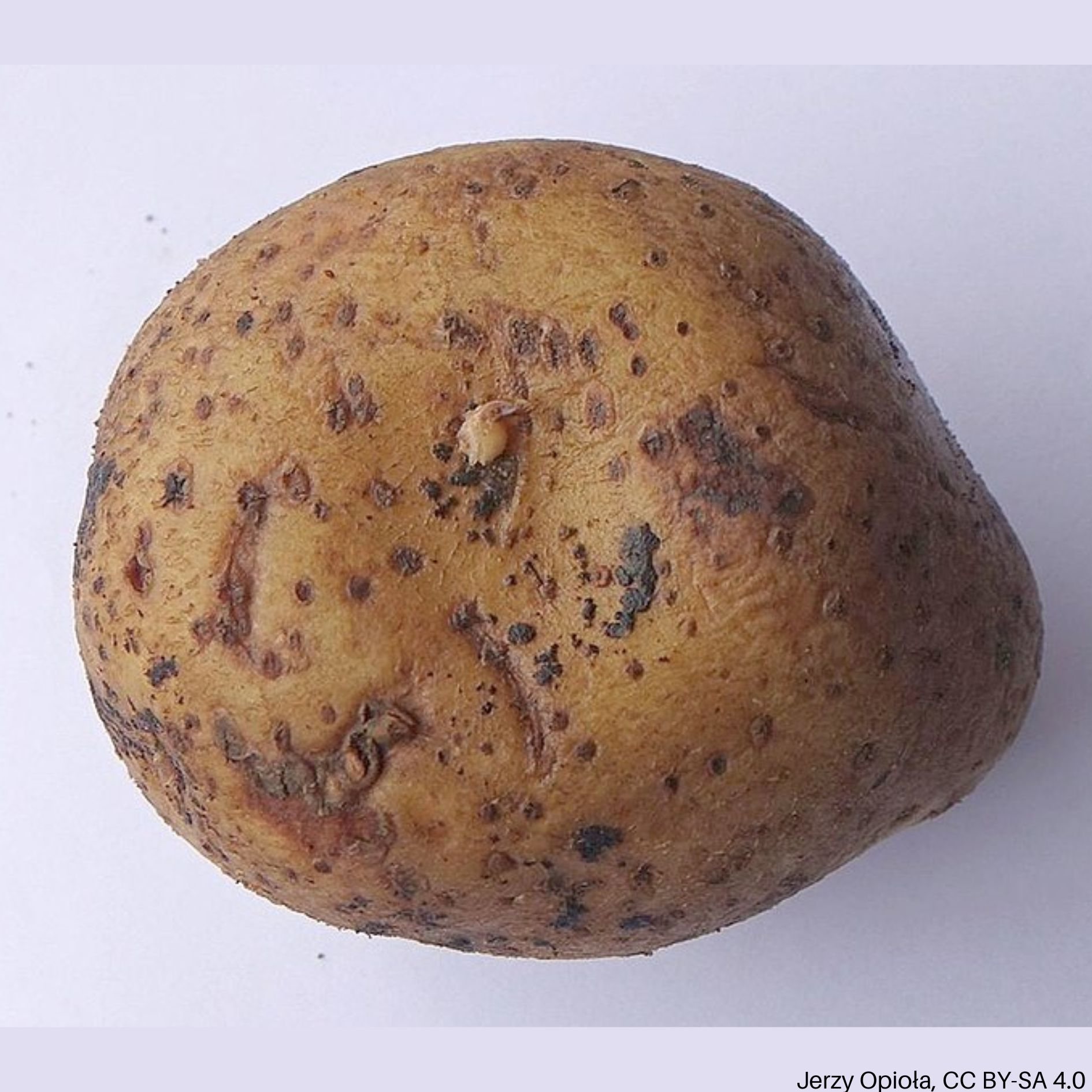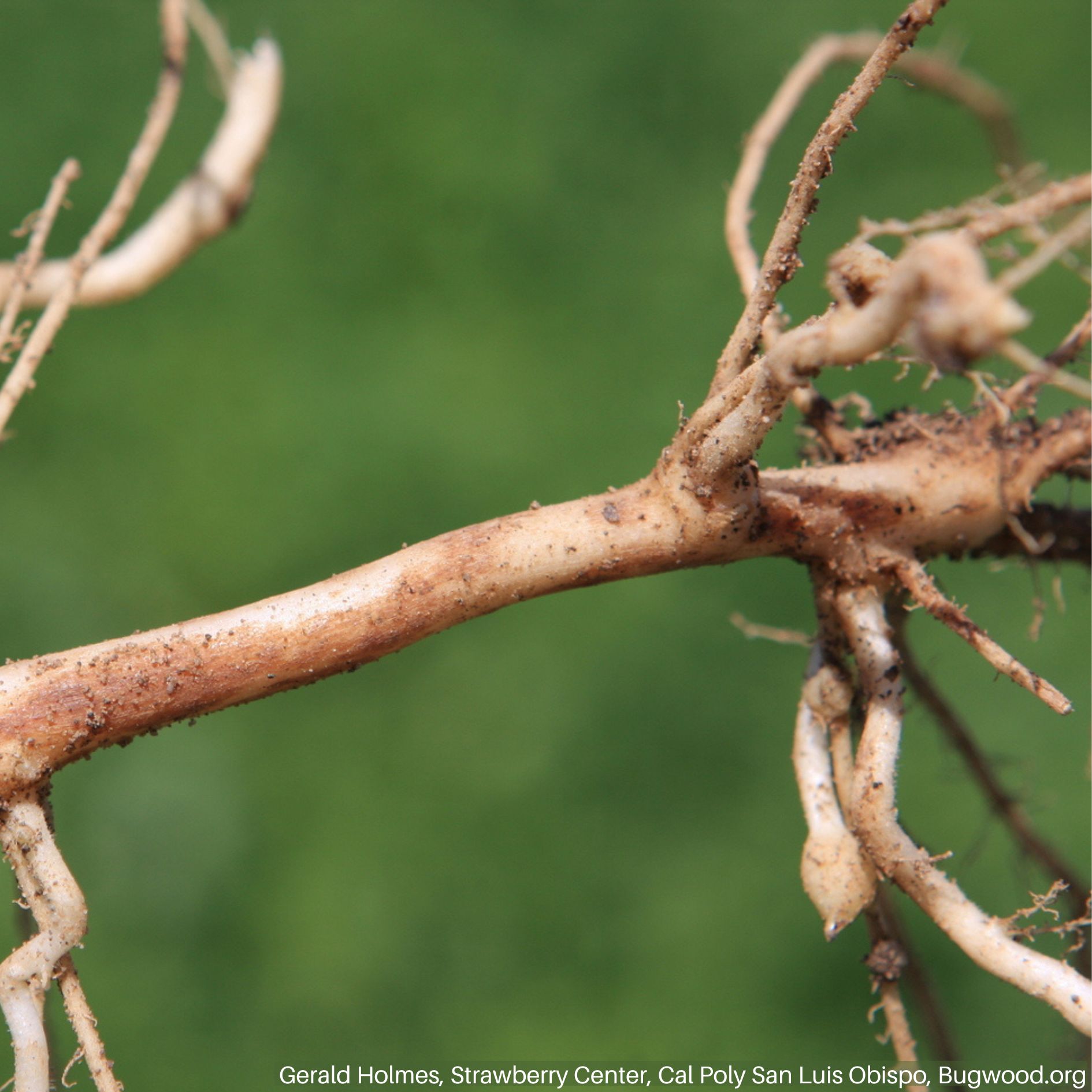Powdery Scab
 Infected Potato
Infected Potato Powdery Scab Lesions
Powdery Scab Lesions Potato with brown powdery scab lesions.
Potato with brown powdery scab lesions. Small brown galls on roots of infected plants.
Small brown galls on roots of infected plants.HOSTS
- Potatoes
DESCRIPTION
Powdery scab is a caused by the protozoa Spongospora subterranea.
BIOLOGY
Powdery scab is primarily introduced through the use of infected tubers, but can also be spread by contaminated soil, and equipment. The pathogen can survive for long periods in the soil in a dormant state, called a sporeball. The sporeball produces mobile zoospores, which move through free water in the soil to invade susceptible plants through root hairs, lenticels, and pre-existing wounds. Inside the host tissue, the pathogen creates masses that aid in secondary spore production and further spread of the disease. These masses can be seen as lesions and galls on infected host plants. At the end of the season, the pathogen produces specialized spores that mass together into new sporeballs.
S. subterranea thrives in cool conditions, with the ideal temperature for infection being 55 °F to 65 °F. Soil moisture also plays a critical role in disease infection as the zoospores rely on free water to move to and invade new hosts.
SYMPTOMS
- Small, wart-like pustules on potato skin.
- Ruptured lesions containing brown, powdery spores.
- Root galls that start white and turn white with maturity.
GENERAL MANAGEMENT
- Plant certified disease-free seeds.
- Ensure soils are well-draining.
- Use potato varieties with resistance to powdery scab.
- Practice crop rotation with non-susceptible crops.

